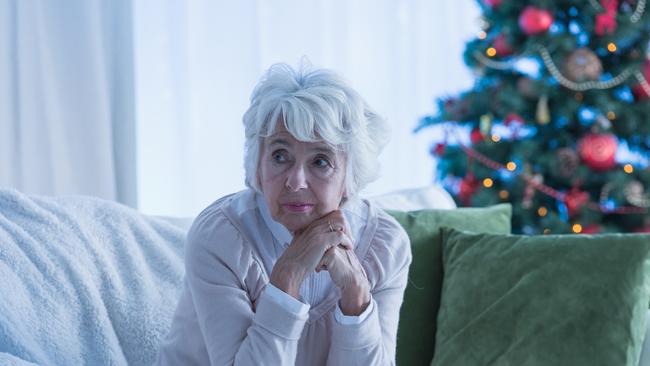Let all your days be merry and bright
For those without friends and family to share it with, Christmas can be isolating. Here’s how to make it a better time.

As the year comes to an end, nerves may get a bit frayed, stresses mount, emotions bubble over; even if you’re looking forward to the new year, you might wonder how you’ll ever make it. And of course Christmas means different things to different people. For those without friends and family to share it with (or with friends and family they’d rather not be around), it can be isolating, even excruciating. It’s not a holiday for everyone, but everyone can do their bit to make it feel more that way. So if you want your festive season to be, well, festive, followed by a happy new year, get your mental health in check now.
Resilience is vital, but that may not be enough to combat the effects of burnout.
Deakin University’s Michael Leiter told the Australian Psychological Society congress that the drivers of burnout are more often found in the work environment than in the workers.
“Burnout is becoming more prevalent as time goes on and it has a lot to do with the intensity of our work environments, as people need to perform at such a high level in order to succeed,” Leiter says.
“A lot of the advice that’s given to people is to toughen up and be more resilient to manage these pressures, but it’s not enough. When employees are burning out, employers need to reflect on the quality of their workplace and not just tell people to toughen up.”
Leiter has developed a workplace civility program that he says helps to change the culture.
“It’s not just about employees doing something for occupational health, as those programs or policies often fall flat. And you can’t leave it to individuals to be nice to people more often, because it doesn’t work that way. Employers need to commit to and encourage employees to buy into a shared vision of a collegiate, civil workplace.”
The NSW government is funding the Black Dog Institute to deliver mental health and wellbeing training to 3600 managers across a range of industries. One in four Australians reports being lonely, which can mean worse physical and mental health; but it is possible to reconnect.
A study by the Australian Psychological Society and Swinburne University of Technology found people with higher levels of loneliness reported more physical health symptoms and poorer mental health. Anxiety about social situations was also common, with nearly 30 per cent of people not feeling as though they were part of a group of friends. Even in loneliness, those responding to the survey proved they are not alone in their feelings.
Swinburne’s Michelle Lim says the findings demonstrate the need for, and benefits of, strong, meaningful relationships. “If you don’t know where to start when it comes to making new friends, focus on the relationships you already have,” she says. “Quality is more important than quantity. Strengthening existing relationships and building intimacy is important.
“More often than not, people are surrounded by friends. But if these friendships do not meet a person’s needs, such as feeling supported or connected, then they will still feel lonely even if they have many friends.”
While most Australians regularly see friends and family, according to the survey, one in three has no neighbours they see or hear from on a monthly basis. Why not knock on a neighbour’s door this Christmas?
Who better to give advice on keeping your wits about you at Christmas than a clinical psychologist? Judy Chan, from the Wesley Hospital in Sydney’s Ashfield, says Christmas can expose or cause financial problems and relationship issues.
“Also for many there is the added stress of dividing time between in-laws — even when they live near, coping with isolation when family is far, or coping with grief or sadness when a family member has been lost to divorce or death,” Chan says.
People need to be more alert to triggers and symptoms and develop strategies to overcome them, she adds.
“Our behaviours can also impact our psyche, so it’s important to set restrictions on the amount of alcohol we consume over the Christmas period, and take the time to exercise, eat healthily and do the things that we enjoy.”
Chan also suggests people not overthink or catastrophise situations, avoid taking on too much responsibility, not aim for perfection, find a confidant, and ask for help when it is needed.
Of course, you may already know all this, and be perfectly prepared for the coming weeks. If so, spare a thought for those who don’t, or can’t, and reach out to lend a hand. It may be the best gift you give.



To join the conversation, please log in. Don't have an account? Register
Join the conversation, you are commenting as Logout